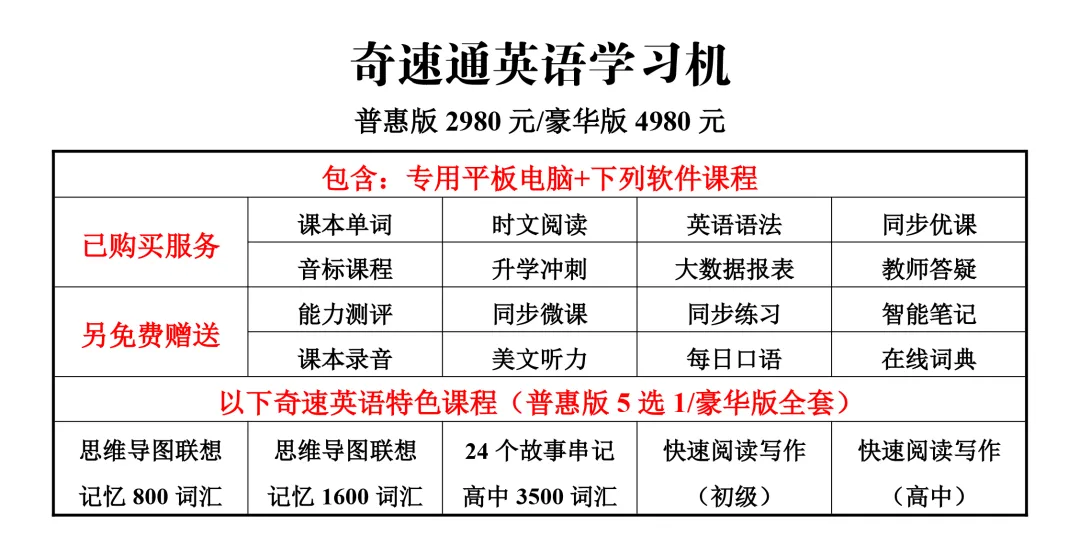1. dance to (music) 随着(音乐)跳舞
2. sing along with 随着…一起唱
3. musicians who play different kinds of music
6. suppose sb to do sth. 猜想某人做某事
7. be supposed to do sth 应该做某事
8. suppose sb (to be) +adj. 原以为…
10. in one’s spare time在某人的空闲时间
11. spare the time to do sth 抽时间做…
12. a film director 一名电影导演
17. prefer A to B 比起B来更喜欢A
18. prefer doing A to doing B
19. prefer to do sth. rather than do sth.
20. feel like doing sth 想要做某事
23. cheer sb up 使… 高兴/ 振奋
24. have a happy ending 有个美满的结局
25. try one’s best to do sth. 尽某人最大努力做…
27. a good way to do sth 做某事的好办法
28. make me feel even sadder 让我感觉更伤心
29. provide plenty of information about a certain subject
30. shut off my brain 关闭我的大脑
1. I love singers who write their own music.
2. We prefer music that has great lyrics.
3. What do you dislike about this CD.
4. What does it remind you of?
它使你想起了什么?
5. The music reminds me of Brazilian dance music.
这首曲子使我想起了巴西舞曲。
6. It does have a few good features, though.
7. She really has something for everyone.
每个人的确都能从她的作品中领悟到一些东西。
8. Whatever you do, don’t miss this exhibition.
9. As the name suggests, the band has a lot of energy.
正如乐队名字所暗示的那样, 这支乐队很有活力。
10. Some people say they are boring, but others say they are great.
有些人说他们很无聊,但也有人说,他们是伟大的。
11.I f I were you, I’d eat nuts instead.
along with是介词短语,意为“连同……一起”,与together with同义。如果句子的主语为单数,后接 along with等介词短语时,谓语用单数。例如:
He sent the books along with other things.
The apple,along with some grapes,has gone bad.
单数主语即使后面带有由with, along with, together with, like, but, except, besides, as wellas, more than, no less than, rather than等引导的短语,谓语动词仍用单数。例如:
Air as well as water is matter. 空气和水都是物质。
My friend said everyone except Tom and Jim was there then.
(1)prefer是及物动词,意思是“更喜欢、比较喜欢”,相当于like better。例如:
Which do you prefer(=like better),rice or bread?
1)preferA to B意为“喜欢A胜过B、比起B来更喜欢A”,此短语中A和B的形式一样,可以是名词、代词或者动名词,但必须两个词形式统一。例如:
We prefer apples to oranges.
My grandma prefers taking a walk to sitting in front of the TV.
2)prefer to do something rather than do something 宁愿做某事,而不愿意做某事.此短语中prefer 的后面用动词不定式,than的后面用省略to的动词不定式。例如:
They prefer to stay at home and watch TV, rather than go out for a walk.
(1)too many 意为“太多,大量的”,后跟可数名词复数。例如:
There are too many books in theroom. You can choose any one to read.
The boy has too many questions toask.
(2)too much作形容词,意为“许多,大量”,后接不可数名词;用作副词,修饰动词。例如:
I ate too much meat. I’mfat. 我吃太多肉了,我胖了。
Watching TV too much is bad for your eyes.
(1)stick作名词,意为“棍,棒,拐杖等”。例如:
The old man has to walk with a walking stick.
(2)stick 作动词,意为“刺;粘贴;卡住”。例如:
The needle stuck her in the hand. 针扎了她的手。
Remember to stick a stamp on envelope. 记住在信封上贴张邮票。
The car was stuck in the mud. 那辆车陷在泥里了。
(1)stick to 意为“坚持,信守”。例如:
Young people should not stick to old ideas and must have the courage to innovate.
(2)stick out意为“伸出,突出”。例如:
She stuck out her foot and tripped him over.
(1)cheer 作不及物动词,意为“欢呼;喝彩”。例如:
We couldn’t help cheering when we won the final.
(2)cheer...up 意为“使……高兴起来;使……振奋起来”。例如:
The whole audience stood up and cheered them up.
Let’s cheer him up.让我们使他振奋起来。
(3)cheer on意为“为……加油;为……打气”。
We all cheered them on loudly. 我们大声地为他们加油。
(1)like 作动词,意为“喜欢,想要”,反义词是dislike或hate。后面可以跟名词,动词不定式或者动名词等。例如:
I’d like some noodles. 我想吃些面条。
My father likes watching TV after supper.
She likes flowers very much. 她很喜欢花。
【注意】like后跟todo 时,表示“某一次的喜好或者倾向”;后跟doing时,表示一贯的习惯或者爱好。例如:
She likes doing her homework after supper, but today she likes to watch TV.
(2)like作介词,意为“如同,像”,反义词是unlike。用于“be like +名词或代词”时,意为“像……”;构成“look like”时,意为“看起来与……相像”。例如:
The baby is like his mother. 这个小婴儿长得像他妈妈。
He looks like a teacher. 他看上去像个老师。
(1)plenty of 意为“大量的,充足的”,相当于alot of, 既可与可数名词连用,又可与不可数名词连用。例如:
I have plenty of time. 我有很多时间。
The room contained plenty of guests. 屋里有很多客人。
(2)plenty of +名词,作主语时,其谓语动词的数要与名词的数相一致。例如:
There is plenty of work to be done. 有很多工作要做。
Plenty of students have come. 来了许多学生。
(3)inplenty 表示“大量;丰富;充裕”。例如:
There is food and drink in plenty.有大量的食物和饮料。
(1)agreat deal of +不可数名词,表示“大量的”。例如:
They need a great deal of food. 他们需要大量的食物。
(2)a great number of +复数名词,表示“许多的”。例如:
Chinese is spoken by a great number of people in the world.
(1)especially表示“特别地”,用于修饰形容词或副词,强调程度。有时也修饰动词。例如:
It is especially cold today. 今天特别冷。
We are especially busy today. 我们今天特别忙。
I’m feeling especially tired this evening. 今天晚上我特别累。
I especially want to see that film. 我特别想看那部电影。
(2)用于强调目的,意为“特意、专门”,通常与表目的的不定式或介词 for 短语连用。例如:
We bought it especially for you. 这是我们特意为你买的。
The book is written especially for children. 这本书是专门为孩子们写的。
(3)表示陈述某一事实之后,列举一个具有代表性的例子,作进一步强调,其后可接名词、介词短语、从句等。例如:
This street is very crowd, especially on Sundays.
We want to invite some friends, especially Jim and John.
-

推荐初高中生学习平板电脑(家教机)一台好的英语学习机一定是孩子自主学习的好帮手、拥有趣味学习的灵魂、具备因材施教精准学的逻辑、涵盖海量资源应有尽有的福利、实现减负增效一步到位的心声。奇速通英语学习机不仅能对中小学生进行英语听说读写诊断,还能帮助孩子尽快适应新学期节奏,激发出孩子们英语单次阅读的学习兴趣。既解决了家长辅导孩子学习之苦,也能进一步提高孩子孩子的学习动力。
适用于家庭首选(书房变培训班),目前无培训班而选择奇速通就相当于把专业和优质的英语教育资源请回家。适用于双减机构转型(可合作代理),目前90%以上的代理商都是孩子受益于奇速通的,于是分享和推广奇速通,所以只要你认可奇速通的理念,看好教育事业,同时你有梦想,有目标,有执行力,就可以订购当校长。
建议初高中生每天抽出10分钟,提升英语阅读素养。
奇速英语时文阅读小程序
这是一款可以随时随地阅读英语的时文阅读软件。
不论你是读小学、初中或高中各年级;
不论你想读记叙文、应用文、议论文、说明文;
不论你想读哪种题型;
不用担心难易程度;
不用去上培训班 ;
英语时文分级读、看世界、学英语。
超100个英语阅读热点话题;
每天实时更新热点文章;
超8000篇原创阅读文章个性化选择。
这款英语阅读软件题材选材同源外报外刊。
需要体验添加老师微信:qisu666888
【特别预告】
奇速英语—基于大数据技术的个性化学习!30篇文章突破英语词汇阅读系列(考研/职教/普教/成人)全部上线,欢迎购买学习、合作代理。
需要咨询老师:


小学初中段:
1.词汇演讲口才拓展训练营(线上课程/线下冬令营)
2.中级英语阅读素养训练营(线上课程/线下冬令营)
3.英语时文分级阅读(软件+月刊)
高中段:
1.高中一本小说24个故事速记3500词汇(线上课程/线下冬令营)
2.高中快速阅读写作营(线上课程/线下冬令营)
3.英语时文分级阅读(软件+月刊)
热门标签
学习方法考试技巧初中语法高中语法音标课商务口语口语技巧中考英语高考英语双语新闻同步微课
奇速英语双师/网课上线新产品
“我是怎么考第一的”,一位尖子生的演讲,值得所有家长深思
奇速英语在四川别称“小四川大学”?2020奇速英语夏令营怎么样?
2020高考英语作文重磅预测! 8类热点话题(抗疫/传统文化/人工智能...) 附范文
蔡章兵:学习英语的十个诀窍
3月9日起,四川中小学线上教学开始,7日8日为试播,最全操作手册请收藏!
2022中国目前较好的家教机学习机 想给初一年级学生买一个学习机,各位大佬有推荐的吗?
备战2020高考英语,除了3500词,你还需要这样来总结每一次考试
2022老师最近总结:英语16种时态简述
高考英语近几年完形填空命题分析及解题点拨,2022高考英语完形填空试题分析
如何从零开始学英语 方法是什么?奇速通智能英语学习机,帮助孩子记忆单词、养好良好的阅读习惯
2022高考英语高级词汇有哪些?




